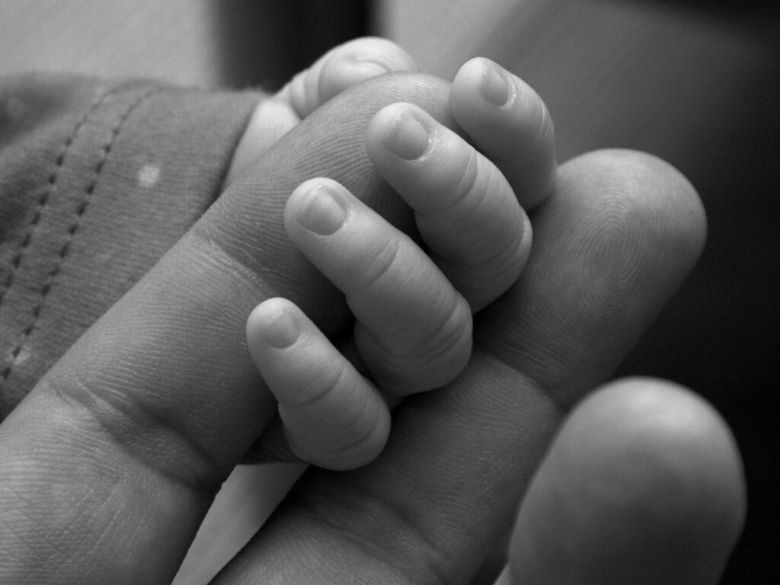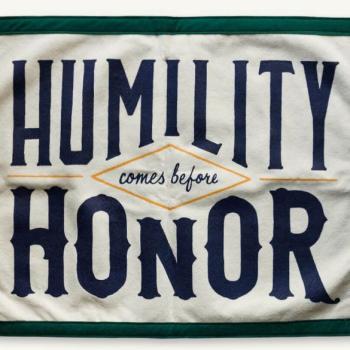
It is easy to say that, in our culture today, we feel more independent than ever before. The reality, however, is that we have merely shifted our dependence.
Every culture in every age has had dependence on something. For example, when the Israelites didn’t like the way that God and Moses were leading them through the desert, they made the idol of a golden calf and worshipped it instead. Now how stupid is it to bow down to something you just made with your own hands?
Hold the phone a minute. Literally.
That gadget in your pocket or purse right now? Tell me there’s no dependence there. All the things with screens and buttons that you own? The device you´re reading this on?
Necessities
Make a quick mental list of all the things you couldn’t imagine living without. The things you “don’t know how we ever got along without.”
All of them were made by human hands. Your car, your alarm clock, your indoor plumbing, your coffeemaker, your water heater, your air conditioner, your refrigerator/freezer. I could go on and on.
People created all these things. All of them can break.
Nevertheless, as hard as this may be to admit, you can live without every single one of them. We know this is true, because before these gadgets were invented, EVERYBODY lived without them.
All these things were invented because their inventors believed that life would be better with them. At least that’s the message that the advertisers hammer home to get you to buy more of this stuff.
Why do countless people stand in line for the new iPhone? Because they believe they need it to make their life better, and they have become blind to the reality that the entire human race has gotten along fine for its entire existence WITHOUT having dependence upon that new iPhone, or whatever the toy du jour is.
So, what do you REALLY need? Let’s make another list.
You need air, water, food, shelter, and physical protection. Meeting these needs will ensure the continuance of your existence.
But here’s something you might not have thought of.
ALL these needs require you to have dependence on something you did NOT make with your own hands.
Now sure, you can cook your own food, build your own house, sew your own clothes, and even make your own medicine if you know how. But out of what?
The food you are cooking either grew out of the ground by a process you didn’t invent or had life of its own that you did not give it. The materials that you made your own clothing, shelter, or medicine from already existed in a form you did not create.
The bottom line is that there really is no such thing as a man-made need. There are all kinds of man-made desires, but you can live without every single one of them.
Healthy Doubt
The world is well equipped to fulfill our desires, but when it comes to our true needs– not so much.
We can have everything we’ve ever wanted, but it will never be all that we need. All of our stuff can fail or vanish in an instant. Most of us don’t find ourselves in that situation, but any of us could.
Therefore, we need to be aware that what we really need is what is provided for us, not what we can create ourselves. For everything we create was created out of something that was already created. We cannot create something from nothing.
That awareness is the key to the beginning of spiritual maturity.
You have to be aware of what you need. You have to be aware of how you are unable to create anything that meets your true needs. Finally, you have to have an awareness of who provides the means to meet your needs.
Again, once you have reached this point, you have a choice.
Do you acknowledge your dependence and admit that you are a spiritual infant and that you really need your Daddy to come and make everything better? Or do you reject that notion and try even harder to fix it yourself, blindly ignoring the reality that you are only repeating the same process that got you to the needy state you’re currently in?
That is the road that pride will lead you down every time.
We arrive, then, at the inescapable conclusion that the only way to have our needs truly met is to surrender our pride and admit our dependence.
In other words, we must use our doubt in a healthy way that leads us to the truth instead of away from it.
For although we are living in the flesh, we do not wage war according to the flesh, for the weapons of our warfare are not merely human, but powerful to God for the tearing down of fortresses, tearing down arguments and all pride that is raised up against the knowledge of God, and taking every thought captive to the obedience of Christ. (2 Corinthians 10:3-5 LEB)
I am not saying that we should never doubt, because doubt will inevitably show up uninvited. What I am saying is that instead of letting doubt and skepticism rule our thinking, we should take our doubts captive and use them to eliminate everything on the “not real” list.
Then we must take the last step of acknowledging that whatever remains is real.
Not all of you reading this will believe it just because I said so (nor should you). But I can tell you that whenever you use your doubt to find what is real, God will always end up on your “real” list. You can’t escape that, no matter how hard you might try.

The Story of How I Tried Anyway
Although the existence of this blog makes it quite clear that I am a Christian, it might surprise you to learn that I am also a natural skeptic. To get an idea of how that all started for me, let me take you back to the second grade.
So, there I was in Sunday school at St. Mary’s at the age of seven. I still believed in Mommy and Daddy, but had learned enough about the world to know that not everything people told you was true.
So then, the teacher gives the first lesson about God, the Daddy who was actually all knowing, all seeing and all-powerful. The vocabulary word for that day was “omnipotent,” with which my seven-year-old tongue was having some difficulties.
Now wait a minute, I thought. Not only are you going to tell me that there’s this God I can’t even see, but you are also going to tell me that he’s stronger than my parents are? Not only that, but he’s stronger than Batman, Superman and the whole Justice League of America and the Avengers COMBINED?
There in that classroom, I had my first I’ll-believe-it-when-I-see-it moment, the first step of my intellectual maturity moving ahead of my spiritual maturity. So, I asked a question as intellectually mature as my second-grade mind could muster.
“If God’s so strong that he can do anything, can he knock that clock off the wall?”
Now imagine the possibilities here. I’m in SUNDAY SCHOOL! In the presence of a TEACHER! Who better to give me the spiritual knowledge, direction, and guidance I needed to keep my spiritual maturity in step with my intellectual maturity? It wouldn’t take long to explain at a seven-year-old’s level the difference between God’s power and God’s will. Heck, I would have been happy with a simple yes or no!
But it didn’t happen that way.
Instead, I got the scowl of ultimate shame and a note home to my parents for my impertinence.
And no answer to my question.
Which made me wonder what other questions didn’t have answers.
And a skeptic was born.
Fast-forward 13 years. That’s how long I had been feeding the skepticism. If you do that long enough, you lose the distinction between doubt and belief, and doubt becomes your belief.
So, I didn’t believe in anything beyond what I could see or what I could do. I allowed myself to believe the worldly lie that I could accomplish anything I set my mind to. In my first two years of college, the strategy of a skeptic appeared to be working for me.
But then in October 1989, I found myself in that cemetery, watching my last shred of what I thought I knew about life wither and blow away.
Then the sun came out from behind a cloud, and I believed in God for the first time.
But this isn’t the happy ending.
(For that, you´ll have to come back next week for Part 4. If you click on Free Newsletter above and type in your email, you´ll be among the first to know when that post is available for the satisfaction of your curiosity).












